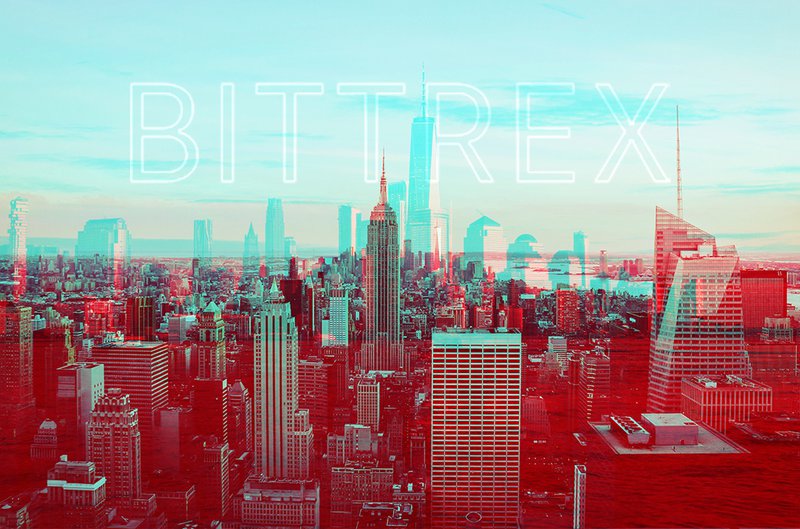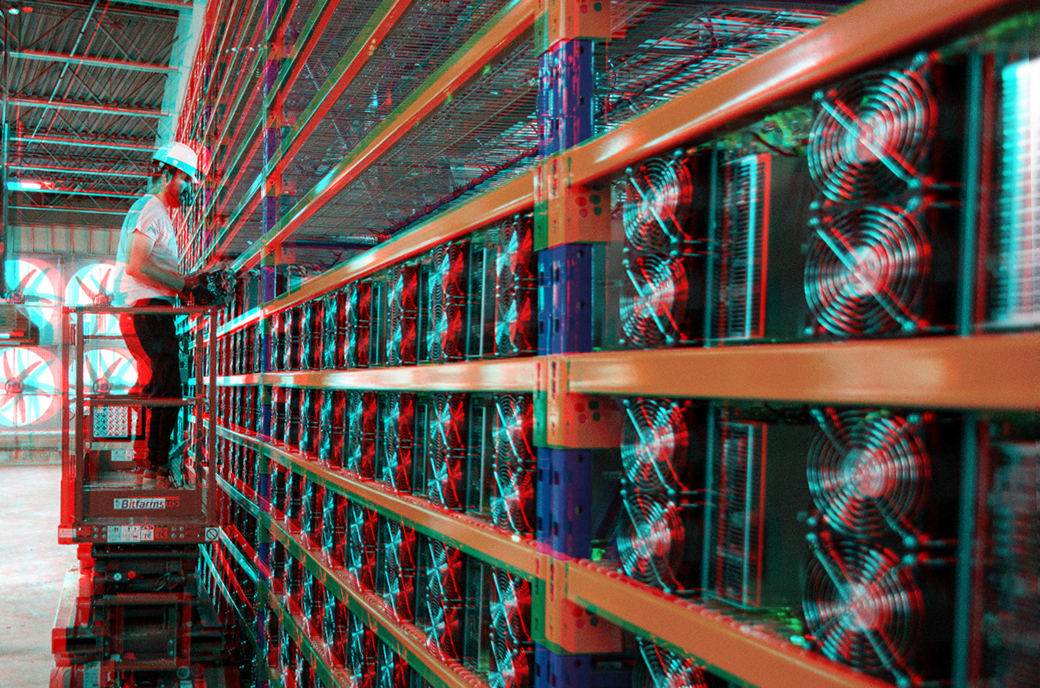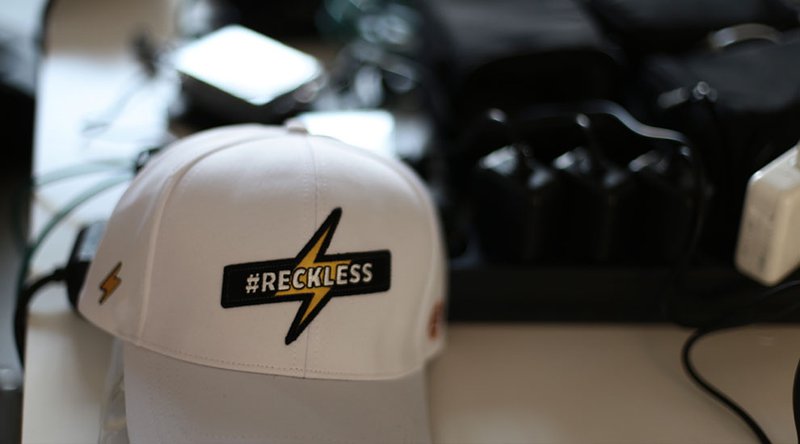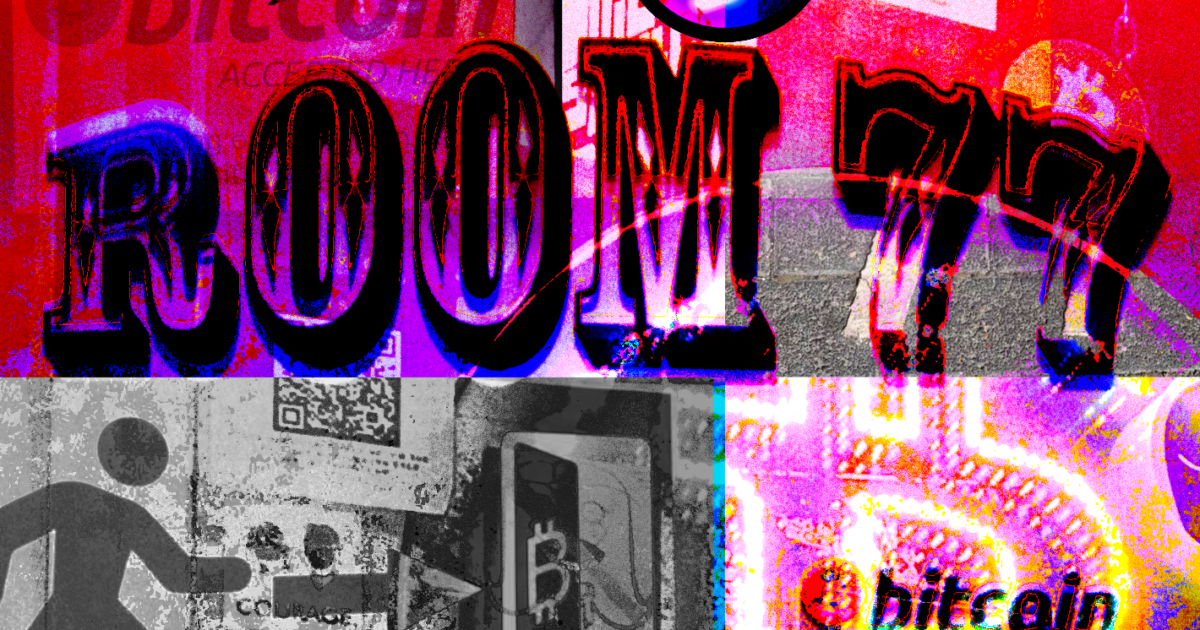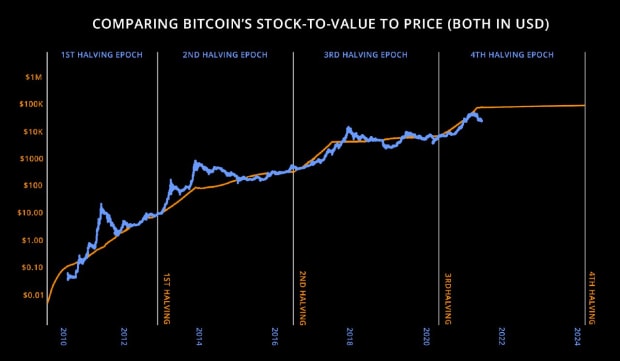Trump’s Persistent Election Result Denials Demonstrate The Need For Bitcoin-Verified Truth
This is an opinion editorial by Dan Weintraub, an author and high school teacher who first became interested in Bitcoin while teaching economics.
I recently watched with bemused indifference CNN’s Donald Trump town hall charade, yet another in an endless list of macabre political and social zombie dances.
The truth is, I don’t care all that much anymore about party politics, about the upcoming presidential election cycle, about supposedly heartfelt and earnest liberal and conservative political expressions within the American polity, about the hand-wringing surrounding the tenuous future of American Democracy, etc. What I do care about, however, is how easy it is for human beings to be manipulated, to believe the lies.
We are all sheep — blind followers with little sense of discernment — we are all entirely programmable and entirely impressionable. History may not repeat itself per se, but as an endless record of follower-humans following leader-humans off of proverbial cliffs demonstrates (and for no other reason than the leader-humans were/are really skilled at lying), it certainly feels like déjà vu all over again.
Worry not! This is not an article about Trump or about ideological disaffection. Trump is just one man in a human melodrama that spans millennia. The focus of this piece is about the role Bitcoin can play in restoring belief and in ending human somnambulance; it is about how we disempower the disinformationalists. And it is a warning, for those in power will go to any lengths to maintain their hypnotic grip on humanity.
Why Governments Fear Bitcoin
So, the first question we must examine is this: Why are governments seemingly so afraid of Bitcoin? Interestingly, it’s not simply because Bitcoin has the potential to end governments’ monopoly on money (which is admittedly a pretty big deal in and of itself). No. The underlying reason actually indicates something far more fundamental: Governments are afraid of Bitcoin as a construct because governments can only govern through deceit and dishonesty.
You see, the most powerful and successful governments throughout history have been (and remain) the ones that are the most adroit and accomplished at lying. The United States government, that bastion of supposed democratic righteousness, is in fact a compelling example of this principle. From Vietnam to Iraq, Joseph McCarthy to Lyndon Johnson to Jerome Powell and beyond, U.S. history is replete with examples of the power of lies, and of the malleability of the minds of well-intentioned, patriotic, innocent, hopeful, lost citizens.
Bitcoin Outs The Lies
Back to Trump for a moment. This from the BBC:
“Mr. Trump has questioned the legitimacy of the election process in a series of tweets, the latest of which said on Monday: ‘Of course there is large scale voter fraud happening on and before election day… Why do Republican leaders deny what is going on? So naive!’ “
The above quote is not from the fall of 2020. This is from 2016, when then-candidate Trump was facing then-candidate Hilary Clinton in the general election. Lest we forget, Trump has been making claims of rigged elections for years. A masterful and, in fact, quite sophisticated practitioner in the art of exploiting human neurological frailty, Trump brilliantly leveraged (and continues to leverage) his skills as a purveyor of disinformation. Indeed, tens of millions of Americans continue to believe that Trump’s claims of election fraud in 2020 are correct, and that the presidency was stolen from him and from his followers.
I find this entirely fascinating and frightening at the same time.
The point is not whether Trump’s claims are accurate. And, if I am being honest, I must admit to having no way of knowing whether or not Trump’s claims are true. (The fact is, if I reject his claims, I may simply be choosing to believe the narrative that has been proffered by the other side. Both sides adhere tenaciously to their data. Both sides dwell in echo chambers that reinforce their narratives. Both sides suffer from the anti-intellectual effects caused by the frailties of human neuroplasticity. And both sides are composed of millions of follower-humans, unaware of the power that the leader-humans wield through their manipulations, through their theater, through their deceits.)
The point here is that, without the capacity to verify Trump’s claims, we are all potential prey; without the ability to know beyond any doubt what really happened in the last election cycle, there is no way to trust the election results — indeed, there is no way to trust our political process at all.
Bitcoin And Neuroplasticity
Neuroscience 101: Hear something enough and you will believe it to be true. Get on your knees and pray to God every day for an hour, and within months, perhaps weeks, even dyed-in-the-wool atheists will believe in God. Read only articles on Breitbart and The Gateway Pundit, listen only to podcasts by Tucker Carlson and Glenn Beck, and you will, beyond any doubt in your mind, believe the election was stolen. Read only articles on Mother Jones and HuffPost and Slate Magazine, and you will believe beyond any doubt in your mind that the election was valid. Listen only to YouTube channels broadcasting the views of Michael Saylor, Balaji Srinivasan, Mark Moss and Jeff Booth and you will believe that bitcoin to $1 million dollars is inevitable, that hyperinflation is coming and that the banks are all going to collapse. Listen only to YouTube channels touting the views of Warren Buffet and Peter Schiff and you will believe Bitcoin is a ponzi scheme and a scam.
Humans are sheep because we are wired to be sheep. We believe that we are critical thinkers and great discerners of truth, but we are all of us just ingesting and internalizing the narratives that we hear, over and over and over again.
Without verification, we are all potential victims to the lies told by those in power.
Again, enter Bitcoin.
As I posited in my previous article, we need to have some imagination. We need to have the willingness to see that, in time, the Bitcoin network could act as the foundational layer to all digital interactions. And in time, there is every possibility that such a network could have the capacity to verify beyond any possible doubt each transaction, each interaction, each news story, each claim by the government, each tweet, etc.
But here’s the thing: We actually do not need to have much imagination at all to recognize that elections and blockchain technology are present tense, not future tense, considerations.
Imagine a system in which every ballot is imprinted with a digital private key/signature. All voting records live on an immutable ledger. While this will not disempower those who employ lies and disinformation as a way to manipulate the neurologically susceptible, it will move us in a direction in which claims of voter fraud, like those touted by Trump, have no teeth. And perhaps in time, as Bitcoin and the Bitcoin network proliferates, more such forms of verification have the potential to undercut the liars’ superpower.
I recognize that at this moment, Bitcoin is feared more for its ability to circumvent monetary control than it is for its inherently truthful nature. U.S. leaders are frightened at the prospect of the dollar losing its status as the world’s reserve currency, and as such, they will do pretty much anything to question and undermine the legitimacy and accessibility of anything that furthers such a possibility. (For example, right now we hear far more about the evils of China and of RNB ascendancy than we do about Bitcoin.)
But can you see, in a possible future in which lying becomes increasingly difficult, why our leaders might fear Bitcoin so very much? And can you see why our leaders will do anything to stop the ascendency of truth and verification? I have little doubt that, as the Bitcoin network becomes increasingly capable of vetting any and all forms of data, of verifying any and all forms and claims upon truth, that leaders the world over will do everything — everything! — in their power to destroy this network — because without the ability to lie, to manipulate we the sheep, all governments, all centralized power brokers, must by their very nature fail.
In time, Bitcoin can become so much more than a monetary network. It can become so much more than a store of monetary value. It can become so much more than property. In time, The Bitcoin protocol and Bitcoin network can become the very thing that those in power fear most: the truth.
Where there is truth, the sheep awaken.
The Trumps Of The World Must Be Held To Account
As I said at the beginning of this piece, this is not a political screed. Politicians lie, regardless of ideology. Leaders on the left are just as apt, just as skilled, at employing disinformation and dishonesty as are those on the right. The point is, without the ability to objectively verify the truth, humans will continue to hurl their mindless selves into the fray, believing to their core the lies proffered by those who benefit from such duplicity.
I know that many of you reading this will see my views about the evolution of the Bitcoin network as the stuff of fantasy. I ask you though: Throughout human history, hasn’t every advancement at once been thought of as fantastic? Bitcoin is only just beginning. Once our leaders come to realize that, in the not-so-distant future, the Bitcoin network and protocol could morph into a global and inviolable lie detector, they will go to any length to kill it. For they are only as powerful as are the believability of the lies they tell.
This is a guest post by Dan Weintraub. Opinions expressed are entirely their own and do not necessarily reflect those of BTC Inc or Bitcoin Magazine.


